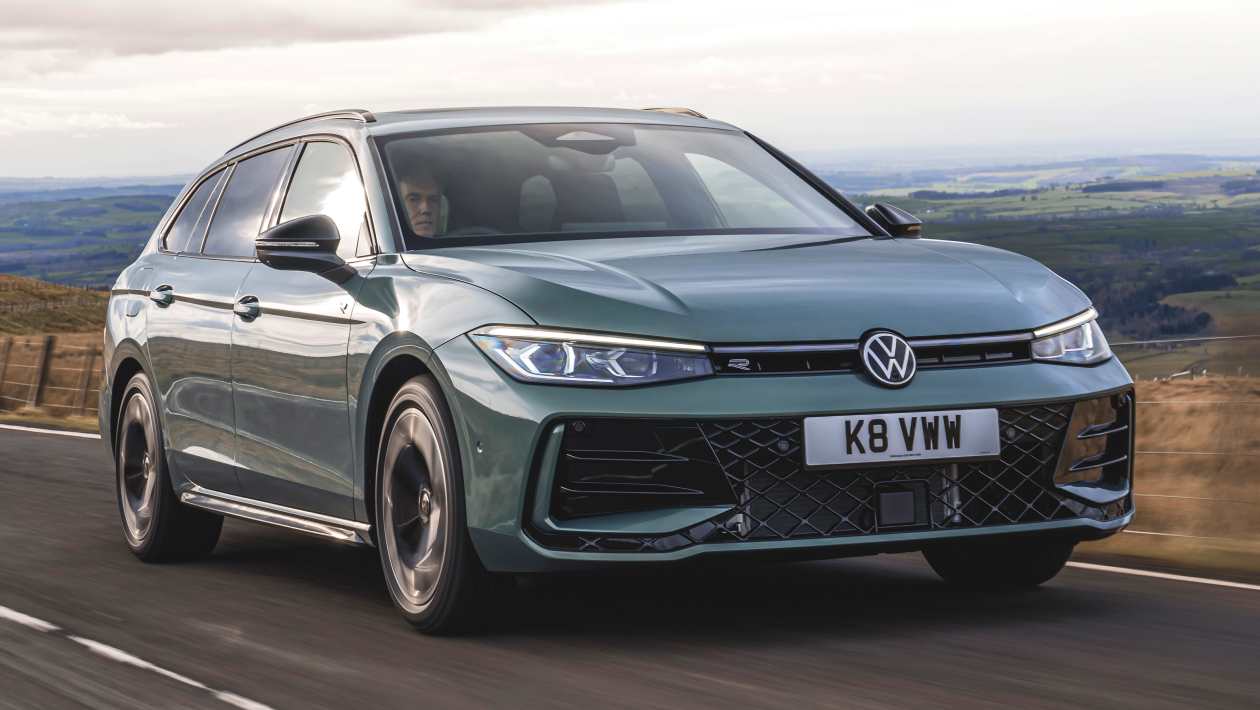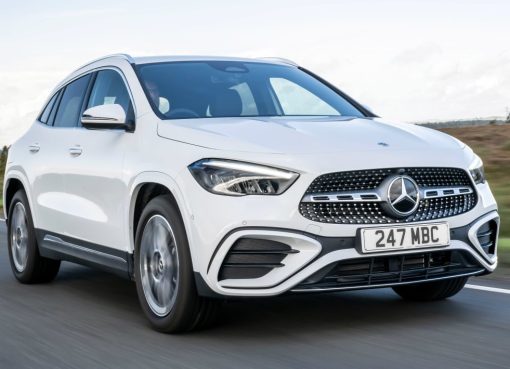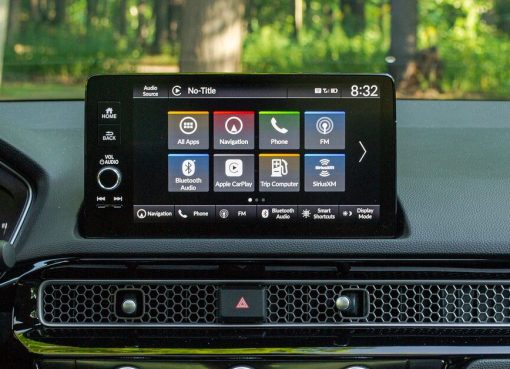Volkswagen Passat review | Auto Express

More reviews
Car group tests
In-depth reviews
Road tests
Prices for the Passat start from £38,500 for a mild-hybrid 1.5 in Life trim, rising to over £51,000 for the most potent 268bhp eHybrid in R-Line trim, which puts it in the realm of premium estate cars like the Audi A4 Avant, BMW 3 Series Touring, and Mercedes C-Class estate. The Passat, however, offers more boot space than all of those rivals, and even eclipses the Mercedes E-Class estate.
Trim levels are a simple choice of three and mirror those of other models in the Volkswagen range. Life trim marks the entry point, but it still comes with plenty of equipment, with 17-inch alloys, parking sensors all-round, heated front seats, an electric tailgate, adaptive cruise control, sat-nav, and three-zone climate control. The mid-range Elegance adds matrix LED headlights, a 30-colour ambient interior lighting system, sports comfort front seats, and 18-inch alloy wheels. The top-of-the-range R-Line has sportier interior and exterior styling, plus fancier adaptive suspension, and sports front seats.
We’ve only been able to try the 148bhp 1.5 eTSI so far, but it’s clear the Volkswagen Passat has been set up for comfort rather than driving thrills, which, to be fair, is what buyers of this type of car will appreciate. Mid-range models and above have more noise-dampening features and the top-spec R-Line has fancier adaptive suspension, this gives the Passat a wider range of abilities. Performance from the 1.5 eTSI is reasonable, but it might struggle with a car full of people. Read more about the Volkswagen Passat’s engines, performance and drive…
Fuel economy for the 1.5 eTSI Volkswagen Passat is excellent, while the plug-in eHybrid Passat is likely to go quite a lot further than the old one on a charge. The PHEV will also appeal to company car drivers looking to reduce their BiK bills, and it’s one of the few plug-in hybrids with rapid charging capability – although that’ll be an expensive way to charge one. Residual values are good, but not quite as high as its SUV alternative, the Volkswagen Tiguan. Read more about the Volkswagen Passat’s MPG, emissions and running costs…
Both the exterior and interior of the Passat have been penned to be much sleeker than before, while the R-Line trim has a sportier look that can be enhanced with a pricey optional styling pack. We’re a little disappointed that VW didn’t use the more user-friendly physical controls that the less expensive Superb has, persisting instead with touch-sensitive controls for its climate control system and more. The overall quality is very good, though. Read more about the Volkswagen Passat’s interior, design and technology…
Some may lament that the VW Passat is only available as an estate, but it is a huge one that offers tonnes of practicality. Not only is it big enough for taller passengers, whether they’re sitting in the front or the back, but the regular version has an even bigger boot than a Mercedes E-Class Estate. The plug-in eHybrid model loses some boot capacity due to its hybrid system, but it still has more than enough space to be useful to a family. Read more about the Volkswagen Passat’s boot space, comfort and practicality…
The Passat is too new to have been included in the 2023 Driver Power Customer Satisfaction survey, but the Volkswagen brand’s lowly 27th place finish out of 32 manufacturers included in the survey suggests there’s room for improvement. The Passat gained a five out of five-star rating from safety experts Euro NCAP, which – along with many of the latest safety assistance features coming as standard – makes it a safe place to put your family. Read more about the Volkswagen Passat’s reliability and safety…
Should you buy a Volkswagen Passat?
Even though estate cars like the Volkswagen Passat have fallen out of fashion in favour of SUVs, the latest Passat still cuts it as a great family car all-rounder. The Passat will win over the sort of people who want a refined car that can cope with a long trip just as easily as a jaunt to IKEA for some oversized flat-pack furniture.
The Passat is filled with tech, which gives it a greater breadth of ability than ever before. The plug-in hybrid also has a much more useful electric range and low (on paper, at least) emissions, providing company car drivers with an affordable offering.
However, all this additional technology comes at a price, and while the Passat does offer a lot more practicality than similarly priced premium estate cars like the Audi A4 Avant, BMW 3 Series Touring and Mercedes C-Class Estate, the car is pricier than the closely related Skoda Superb. The Superb has a greater choice of engines (although that should be sorted in time), and, according to our data, should hold its value similarly well. The Superb also has a more user-friendly interior owing to having more physical controls, so we’d suggest you try a Superb first before committing to a Passat.
Frequently Asked Questions
The standard Volkswagen is three years or 60,000 miles, which is a little mean when plenty of manufacturers can provide between five years of coverage or more.


